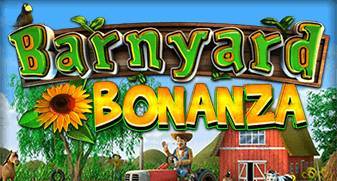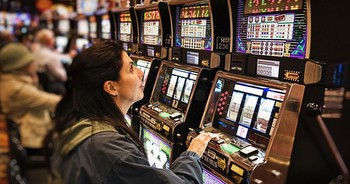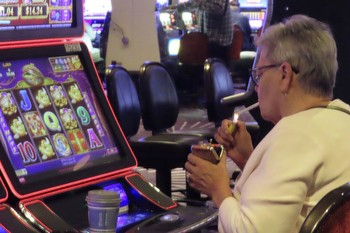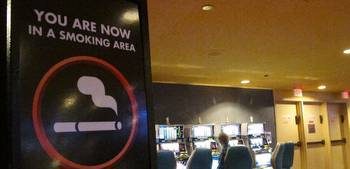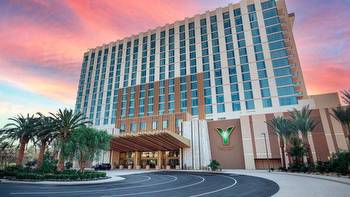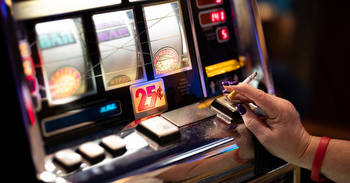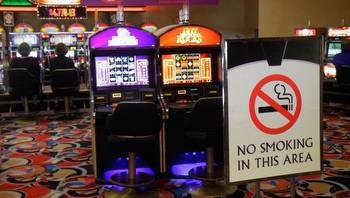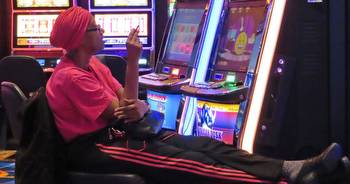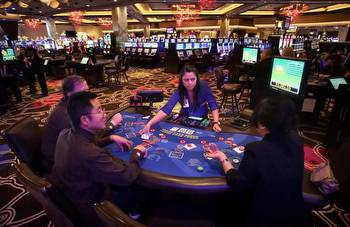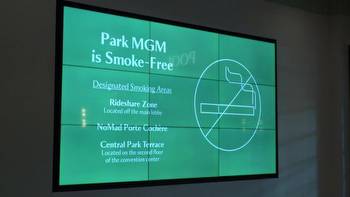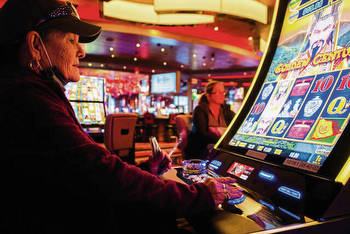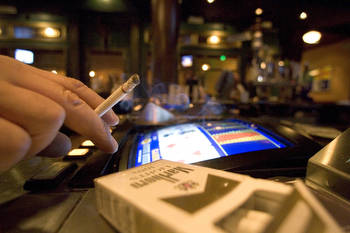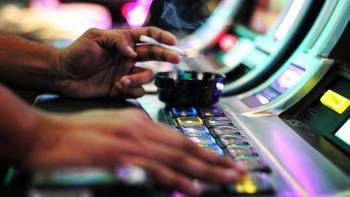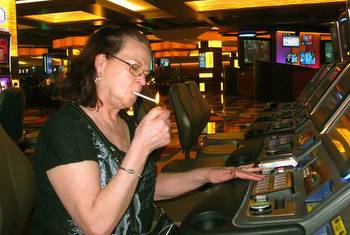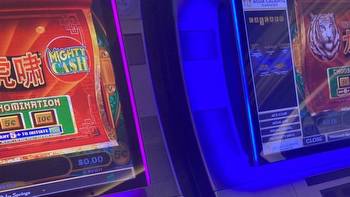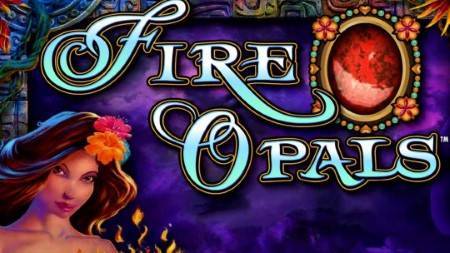No smoking inside a casino? Koi Nation's plans in Wine Country are part of a wider trend
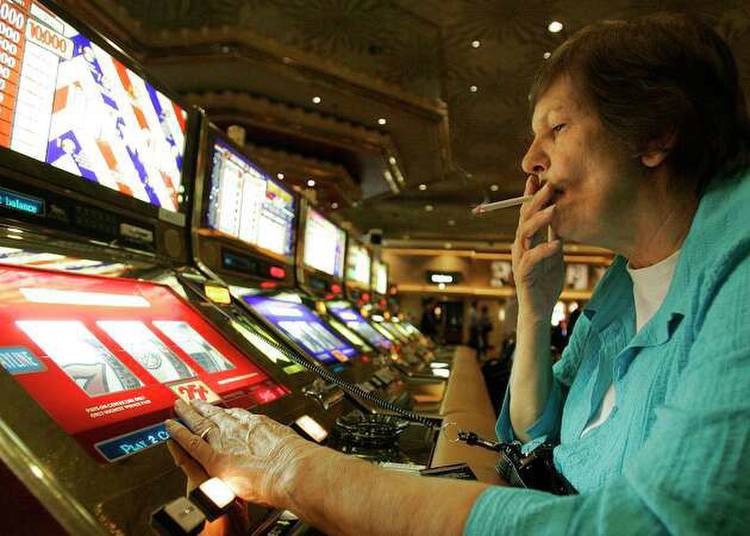
The Koi Nation’s plans to build a new tribal gaming venue near Windsor — the Shiloh Resort & Casino — will likely attract attention for the hundreds of slot machines and tables, the hotel rooms and restaurants, and the new jobs and traffic.
But what’s also somewhat unusual about the planned casino is that it will be totally smoke-free.
That may not sound surprising in a Wine Country area that attracts a wide range of tourists and has been plagued by smoke and soot from devastating blazes. But smoke-filled gaming floors are part of the lore of casinos, and some operators don’t want their hardcore clientele stepping away from the slots for a cigarette break.
Still, more casinos — including the Graton Resort & Casino in Rohnert Park, which is contesting the Koi Nation project just up Highway 101 — are starting to set aside non-smoking sections, sometimes in separate buildings, and install more robust air purifiers.
Some are even deciding not to cater to smokers at all, gambling that they can atract more people who don’t want to breathe foul air while they play, drink or dine.
Here’s a deeper look we took at the issue in December 2019. The headline was, “Tribal casinos remain last refuge for California smokers, at least for now.”
Smoking is prohibited in almost every enclosed public place in California, from bars and restaurants to sports arenas and movie theaters. Even parking garages ban the noxious fumes.
But tribal casinos in California remain a smoky outlier — at least for now. Only here can bettors play slot machines and other Vegas-style games in a setting reminiscent of the era when smokers were free to light up nearly anywhere they pleased.
Because the California tribes are sovereign nations, they’re not subject to many state laws, including California’s no-smoking regulations. They can set the rules for their casinos, and only three of California’s 69 tribal casinos are entirely smoke-free.
Howard Asprey, a 60-year-old Richmond resident who used to frequent tribal gaming establishments, said he’s been to about 20 tribal casinos around the state, all of which permit smoking. He used to regularly visit California casinos with his wife and daughter, but after his wife suffered a couple asthma attacks due to casino smoke, requiring trips to the emergency room, they ceased their visits.
“They’re all about the same,” Asprey said. “You go in and it burns your eyes. You can smell the smoke right away. If you ever have trouble breathing, it’s not a place to go inside.”
So far, just three small California casinos have bet on going smoke-free: Lucky Bear Casino in Hoopa (Humboldt County), Redwood Hotel Casino in Klamath (Del Norte County) and La Jolla Trading Post in Pauma Valley (San Diego County).
Narinder Dhaliwal, director of California’s Clean Air Project, a state-funded program that works with tribes — and their casinos — to reduce smoking, said that these locations have just 150 to 200 slot machines compared to 3,000 in some of the state’s biggest casinos. The incentive for larger casinos to make a change will likely have to come from customers.
Win-River Casino near Redding (Shasta County) went smoke-free for 11 months before reversing course to allow smoking in 30% of the casino after business dropped off, Dhaliwal said.
“If you want a smoke-free environment, you’ve got to start asking for it,” she said. “And if they give it to you, you have to show up and use it.”
Patrons and employees of casinos often accept smoky gaming floors as a fact of life, but the choke of smoky air is a common complaint in online reviews of the Bay Area’s three tribal gaming establishments: San Pablo Lytton Casino, Graton Resort & Casino in Rohnert Park and River Rock Casino in Geyserville.
Tribes have cooperated with anti-smoking programs, funded by state cigarette taxes, but they’ve been reluctant to ban the habit because they worry it could cut into casino revenue. Tribes use this money to fund their governments as well as health, education and cultural preservation programs. In some tribes, revenue is divvied up and paid to members.
“These are businesses, and even though smoking is a public health issue near and dear to our hearts, we also have to remember that they have to consider the economic impact on the tribe,” Dhaliwal said.
The state Department of Public Health reports that just 10.5% of California adults smoke, and that has prompted casinos across the state to establish non-smoking sections in their casinos. Many, however, share permeable walls or don’t have a barrier at all.
While they boast high-powered ventilation systems, reports from the U.S. Surgeon General and World Health Organization found that these amenities might make the casino look and smell smoke-free but don’t eliminate the dangers of secondhand smoke.
“It’s a misconception,” Dhaliwal said. “There is not a form of ventilation that can remove secondhand smoke from air. They can reduce the odor, they can reduce the visible smoke in the air, but they will never get rid of the carcinogens.”
Bronson Frick, director of advocacy for Americans for Nonsmokers’ Rights, said his Berkeley-based organization receives many calls from casino workers eager to escape the smoke.
“The casino workforce is the job sector most exposed to cigarette smoke in the U.S.,” he said, adding that the number and size of tribal casinos is growing, which means an increasing number of employees will be exposed to secondhand smoke.
Clearing the air in California casinos, Frick and Dhaliwal said, is something that would need to be negotiated tribe by tribe. Americans for Nonsmokers’ Rights and the California Clean Air Project both recognize the sovereignty of Indian tribes and have delicately tried to persuade casinos of the benefits of eliminating smoking.
In addition to the health costs, smoking often causes high turnover among employees and increased training costs, Frick said. It also hastens damage to furnishings, which need to be cleaned or replaced more frequently, forcing casinos to invest in costly filters and ventilation systems.
“We strongly support sovereignty and are happy to help tribes move in the direction of being smoke free when they decide it’s time to go smoke free,” Frick said.
In the Bay Area, Graton converted a former events center into a nonsmoking gaming area, and San Pablo Lytton recently replaced its ventilation system with one that filters out more smoke and pumps in fresh air.
Dhaliwal said that gamblers sick of smoke-filled casinos can spur change by mentioning their concerns in the comment cards most casinos provide, or by talking with employees who ask about their visits.
“One day we will have all tribal casinos in California be smoke free,” she said. “It may be a way down the road, but it will happen. At least that’s my vision.”
Michael Cabanatuan is a San Francisco Chronicle staff writer. Email: mcabanatuan@sfchronicle.com@ctuan







